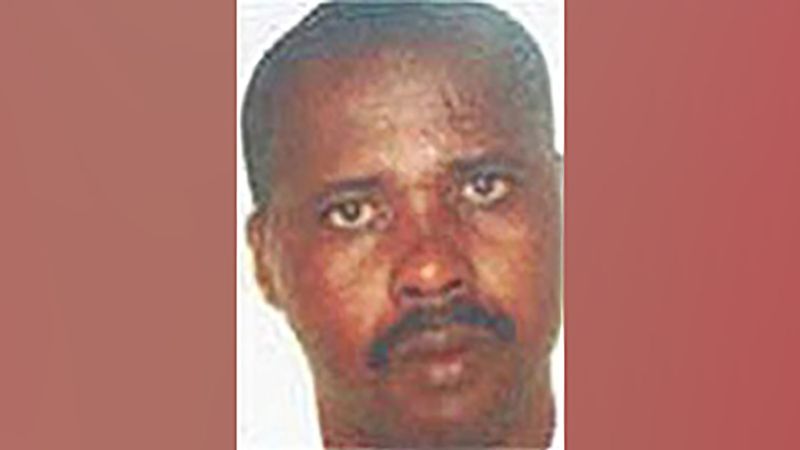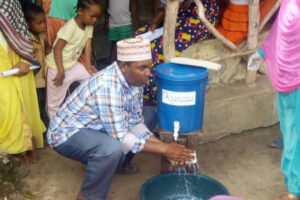The most wanted fugitive in the Rwandan genocide of 1994 has been arrested in Paarl, South Africa after decades on the run.
Fulgence Kayishema is accused of orchestrating the killing of more than 2,000 Tutsi refugees – women, men, children and the elderly – at Nyange Catholic Church during the genocide. He has been on the run since 2001.
He was captured Wednesday in a joint operation between the South African authorities and UN investigators.
When he was arrested, Kayishema initially denied his identity, according to a statement from the UN team. But by the end of the evening he told them: “I have been waiting a long time to be arrested.”
Investigators said he used multiple identities and forged documents to evade detection.
“The arrest was the culmination of an intense, thorough and rigorous investigation,” a senior official at the prosecutor’s office involved in the case told CNN.
“Family members and known associates were exhaustively investigated. That ultimately led to identifying the right location to search and finding the critical intelligence that was needed.”
“Fulgence Kayishema was a fugitive for more than 20 years. His arrest ensures that he will finally face justice for his alleged crimes,” said Chief Prosecutor Serge Brammertz of the United Nations’ International Residual Mechanism for Criminal Tribunals (IRMCT).
“Genocide is the most serious crime known to humankind. The international community has committed to ensure that its perpetrators will be prosecuted and punished. This arrest is a tangible demonstration that this commitment does not fade and that justice will be done, no matter how long it takes,” Brammertz said.
At the end of the genocide in July 1994, Kayishema fled to the Democratic Republic of Congo with his wife, children and brother-in-law. After relocating to other African countries, he moved to South Africa in 1999 and claimed asylum in Cape Town, using a false name.
According to prosecutors, since his arrival in South Africa he was able to rely on a tight support network including former Rwandan military members which went to extreme lengths to conceal his activities and whereabouts.
Huge reward offered
In recent years, the IRMCT prosecutor has complained about the lack of cooperation from South African authorities and there have been a series of near misses capturing Kayishema. A report describes a failure to arrest Kayishema three years ago.
But on Thursday, Brammertz lauded the cooperation and support of the South African government.
The events in Nyanga, Rwanda, were one of the most brutal of the genocide, in which an estimated 800,000 Tutsis and moderate Hutus were killed over the period of 90 days.
The tribunal alleges that Kayishema directly participated in the “planning and execution of this massacre.” The indictment says he bought and distributed petrol to burn down the church while refugees were inside. Kayishema and others are also accused of using a bulldozer to collapse the church following the fire, while refugees were still inside.
The former priest at the church, Athanase Seromba, was convicted over the massacre in 2006 and sentenced to 15 years in prison, which was later increased to a life sentence on appeal.
Kayishema is due to be arraigned on Friday in a Cape Town court.
A reward of up to $5,000,000 was offered by the US War Crimes Rewards Program for information on Kayishema and the other fugitives wanted for perpetrating the Rwandan genocide.
With the arrest of Kayishema, the UN is still seeking three more prominent suspects.
In 2020, another fugitive was captured in a Paris suburb after more than 20 years on the run.
Félicien Kabuga, “one of the world’s most wanted fugitives,” who is alleged to have been a leading figure in the genocide, was arrested in a joint operation with French authorities.
The Rwandan genocide saw Hutu militias and civilians alike murder vast numbers of members of the Tutsi ethnic minority: men, women and children, many of whom had been their neighbors before the conflict began.
The killings finally came to an end 100 days later, when Rwandan Patriotic Front (RPF) troops, led by Paul Kagame, defeated the Hutu rebels and took control of the country.
Source: cnn.com














